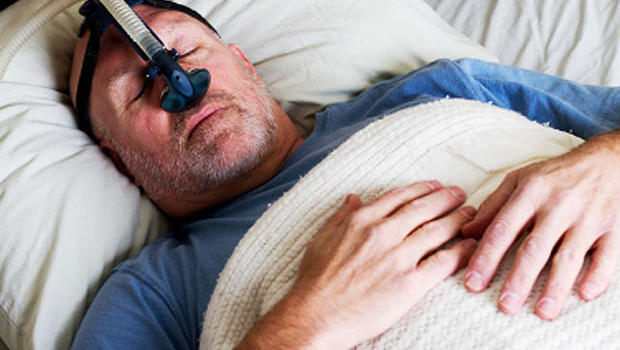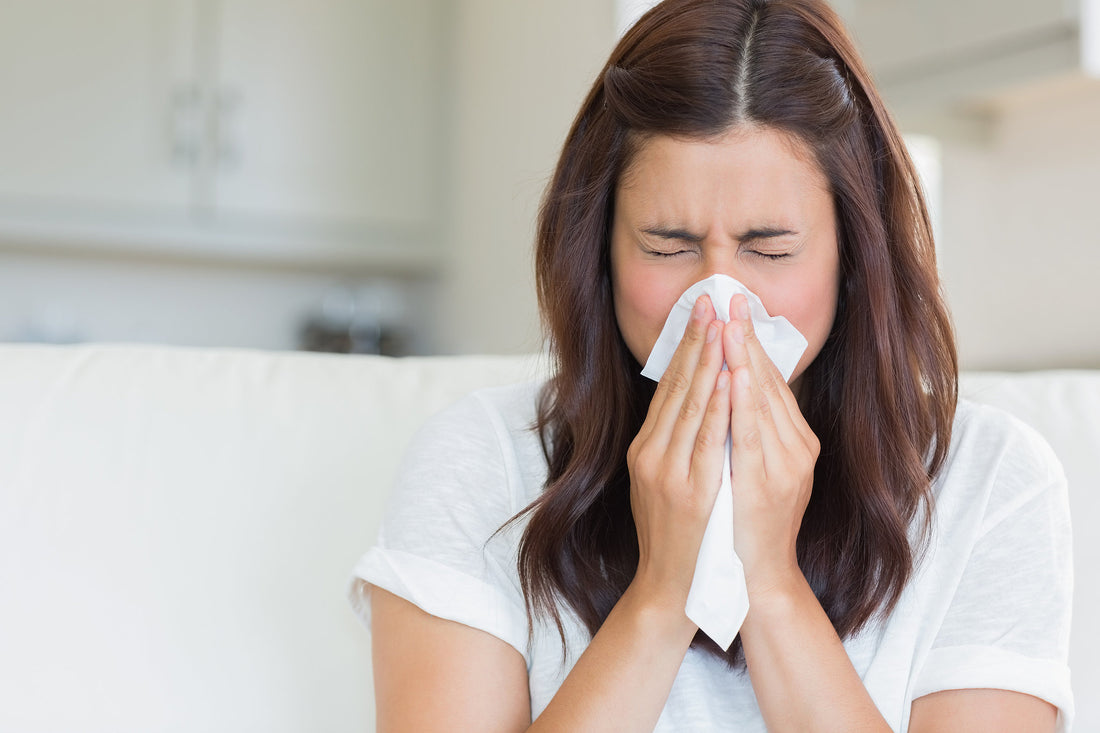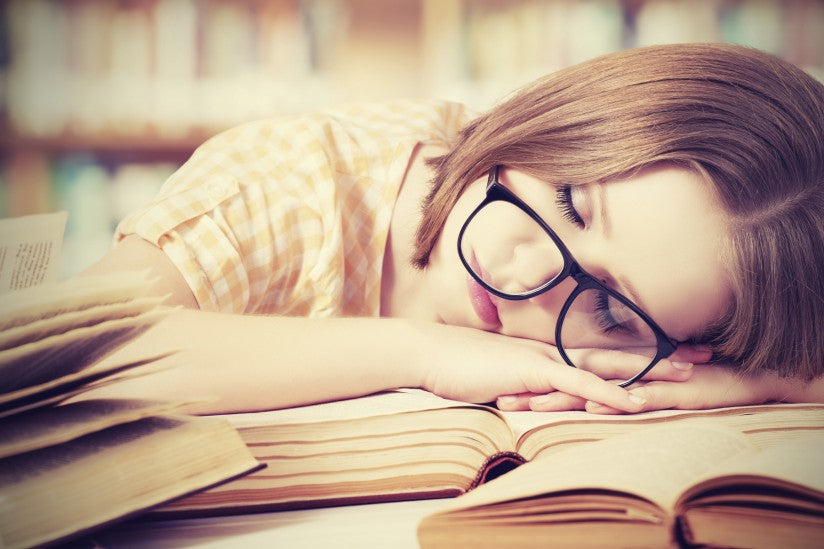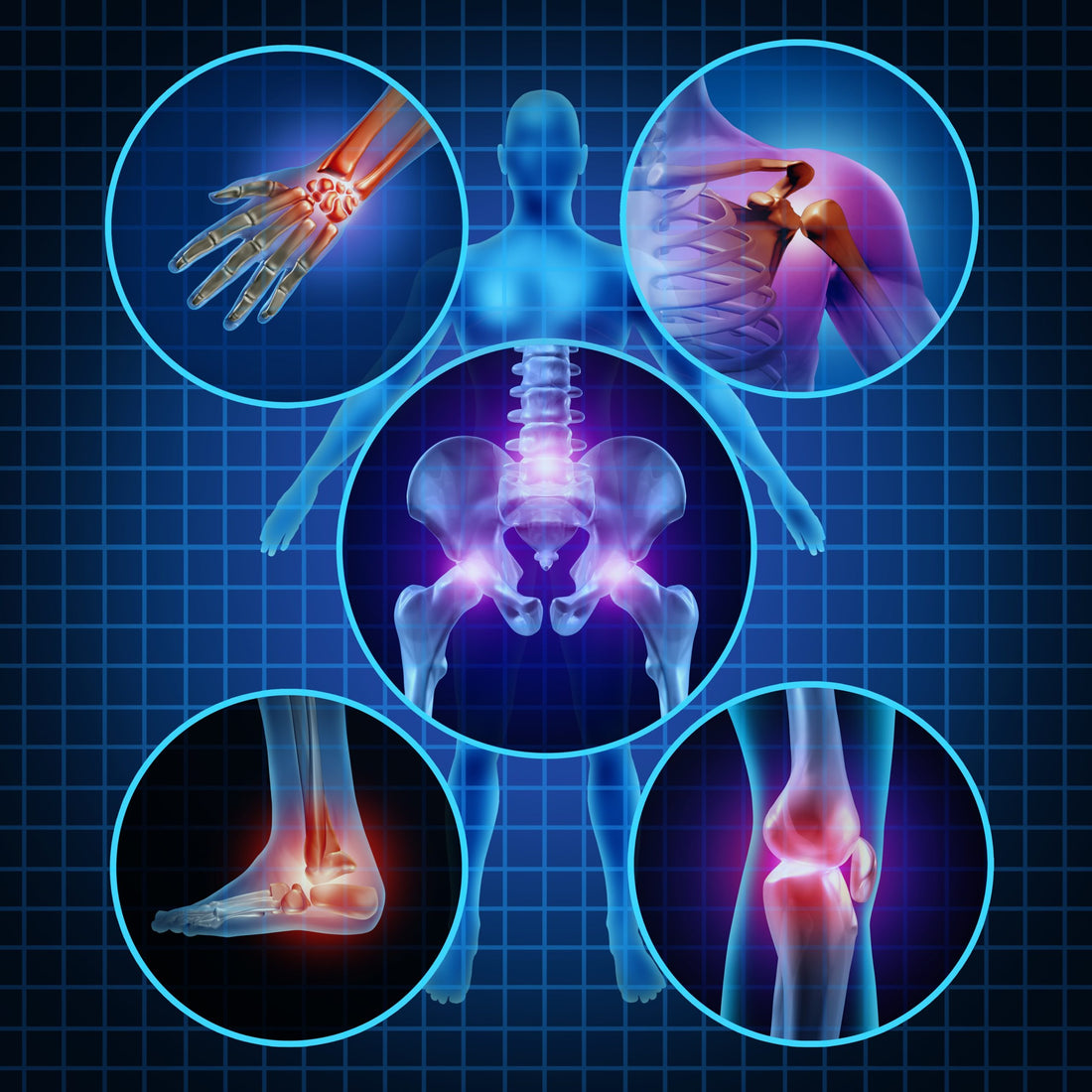News
Is a CPAP machine covered by healthcare?
wp:paragraph What is CPAP? /wp:paragraph wp:paragraph Continuous Positive Airway Pressure, often just called CPAP, is a system that uses light pressure to help keep a person's airways open, particularly at night. It is typically used by those people who have breathing issues, including sleep apnea. /wp:paragraph wp:paragraph The CPAP machine can include a mask that fits over your mouth and nose to prevent your airways from closing while you sleep. /wp:paragraph wp:paragraph Costs of a CPAP machine /wp:paragraph wp:paragraph One issue with the machine is that it can be expensive. For Ontario residents however, the Ministry of Health and Long-Term Care has a program called the Assistive Devices Program (ADP) which can offset some of the costs associated with various machines, including CPAP. ADP will pay 75% of their approved price of a machine, and you will need to cover the other 25%. /wp:paragraph wp:paragraph Other provinces offer their own level of funding. For example, Saskatchewan provides the CPAP systems but users need to buy their own mask, the humidifier and any other accessories needed. In Manitoba, approved CPAP systems, including the unit itself, the mask, and accessories, are provided by the province. Other provinces, such as Alberta, offer funds for CPAP therapy for eligible seniors with specific income thresholds. Other provinces offer a limited amount of funding for CPAP machines. /wp:paragraph wp:paragraph At a national level, some Veteran Affairs Canada and Non Insured Health Benefits funding may be available for those who are eligible. /wp:paragraph wp:paragraph Who can apply to CPAP funding programs? /wp:paragraph wp:paragraph Any resident provincial with a valid health card in their name who has doctor-diagnosed obstructive sleep apnea and who meets all other eligibility criteria can apply to CPAP funding programs. /wp:paragraph wp:paragraph You may be required to attend a sleep clinic to verify our eligibility. Your sleep physician and clinic staff will determine the type of equipment you need. /wp:paragraph wp:paragraph Can your personal health insurance company cover the remaining CPAP costs? /wp:paragraph wp:paragraph Many insurance companies will cover the remaining expenses of obtaining a CPAP machine. Contact your insurance agent for more information. /wp:paragraph wp:paragraph What equipment and supplies does a person need? /wp:paragraph wp:paragraph A CPAP system can consist of the some or all of the following items: /wp:paragraph wp:list The actual CPAP device A heated humidifier A mask and related head gear Tubing Carrying case Caps and filters Power cord Instruction manual /wp:list wp:paragraph If you need other parts that are not included as part of the system, you may need to pay for those costs yourself or through your insurance. /wp:paragraph wp:paragraph What happens when you need to replace your CPAP equipment? /wp:paragraph wp:paragraph Some provinces, such as Ontario, may contribute funds towards replacing your equipment when it no longer works, cannot be repaired, and has past the warranty date. Note that you still need to meet the necessary eligibility requirements. /wp:paragraph
about Is a CPAP machine covered by healthcare?Getting ready for 2016: New Year’s Resolution tips for CPAP Users
wp:paragraph Happy 2016! The New Year signifies a fresh start and a new beginning for many people. Some try to exercise more and eat better, others simply strive to be more open minded in their lives. If you use a CPAP machine, the New Year can also be a perfect time to step it up in terms of your parts replacement schedule, or improving your overall sleep habits. /wp:paragraph wp:image {"id":3665,"sizeSlug":"large"} /wp:image wp:paragraph As big as New Year’s Resolutions are for making improvements for people, prioritizing sleep is incredibly important to your overall health, especially for those who use a CPAP machine. Not only does this improve your experience using the machine, but getting a good night of sleep also affects how you function during the daytime. So the start of the New Year is the perfect time to take advantage of making positive changes to your overall sleep health. /wp:paragraph wp:paragraph Here are some tips for CPAP users to consider for the New Year: /wp:paragraph wp:list Has your bed time fluctuated over the holidays? This happens to a lot of people over the holidays with many late nights. It is best to go to bed at the same time each night, and wake up at the same time each day (or at least very close to it) Take some time to sit down and set your parts replacement schedule for the year. In order to keep your CPAP machine and its parts in perfect working condition, they will need to be replaced or upgraded on a regular basis. This is a good opportunity to take inventory of what you have, and what you may need in the coming future, so you can budget it in too (as it’s no secret that some important CPAP parts can break the bank). Avoid having heavy meals close to bedtime, and avoid drinking caffeinated beverages too late in the daytime. Avoid the use of electronic devices too close to bedtime (yes that includes the TV) If you aren’t doing so already, be sure to make a habit of cleaning your machine and its parts on a regular basis (at least once a week) Practice good diet and exercise. Even though many people may already have this as their New Years resolution, this can work wonders in helping you to sleep better at night /wp:list
about Getting ready for 2016: New Year’s Resolution tips for CPAP UsersKeeping up with your CPAP routine throughout the holidays
wp:paragraph It’s that time of the year again! For many of us, the Christmas holidays often involves spending time with loved ones, and yes, indulging in some stuff that you may not normally be into during the year. This includes alcohol, delicious food, lots of stress and many late nights. As fun (or not) as it may be, all of this can contribute to some terrible nights of sleeping, which can result in some grinchy-like behaviour in the morning. /wp:paragraph wp:paragraph There may be a lot going on for you during the holidays, however you can still have a great time AND sleep well each night. Here are a few tips for staying into your normal sleep routines during the holiday season. /wp:paragraph wp:list Be careful with how much alcohol you drink: as nice as it may be to let loose at that office party or on Christmas Eve with the family, having too much to drink can lead to you having a terrible sleep. You may be falling asleep faster than normal, however your sleep apnea symptoms can get significantly worse from drinking. It is okay to indulge in some not so healthy foods, but don’t overdo it: it may be especially tempting to indulge on some sweets after dinner, but experts say that eating too much before bedtime can keep you awake at night, especially anything containing caffeine or sugar. That doesn’t mean that you can’t treat yourself at all, but know where to stop. Try to go to bed and wake up at the same time each day: maybe you’re spending a few nights away from home, or maybe you have guests that have come to stay with you. But keeping up with your sleeping routines is very important to sleeping well. Late nights are okay, but try not to go to bed any later than an hour past your bedtime. Try not to stress yourself out: we all know that the holidays can be a stressful time, between last minute Christmas shopping, cooking for family gatherings and more. But did you know that stress is a huge contributing factor for poor sleep? Be sure to take time for yourself to de-stress, even if it means vegging on the couch and watching your favourite Christmas movie. Get some fresh air: whether the ground is white where you live, or whether there’s barely a snowflake on the ground, indulging in some natural daylight helps your circadian levels which in turn can help you to sleep better at night. Stay consistent with your CPAP machine each night: if you think that just one night without your CPAP machine will be nothing, think again. Your sleep apnea symptoms will worsen and you will be in for some sleepless nights. It’s really not worth it at this time of the year. /wp:list
about Keeping up with your CPAP routine throughout the holidaysThe dreaded cold and flu season: survival tips for CPAP users
wp:paragraph Well, it’s that time of the year again. People all around you have been feeling under the weather and you probably have figured out that cold and flu season is in full swing. If you haven’t come down with something already, chances are, either you or someone you know will get something soon enough. /wp:paragraph wp:paragraph If you use a CPAP machine, then you know all too well how uncomfortable a cold can be when trying to use the machine at night as you normally would. As tempting as it may sound, it is of no benefit to you if you decide to set the machine aside just for a night or two until you can breathe normally again. If having a cold wasn’t bad enough, you will not have the benefit of being able to sleep soundly though the night if you forgo your CPAP therapy. So then you’ll not only be sick, but you will lose sleep as well, which is crucial for fighting off your cold! It may sound like a challenge, but you can fight off this cold AND not lose any sleep from getting frustrated with your CPAP machine. /wp:paragraph wp:paragraph Here are some tips that can help to both alleviate your cold and help you sleep better at night, without having to set the CPAP machine aside for the night. /wp:paragraph wp:list Try using an over the counter saline nasal spray: this will help to add moisture to your sinuses and reduce the swelling to help you breathe a bit easier Add a heated humidifier to your CPAP machine: this works wonders for CPAP users as the heat helps to add moisture to your sinuses. For best results: be sure to position the humidifier lower than the bed, and try to keep the room temperature on the warm side Try sleeping on your side, or prop your head higher so that your nasal passages are elevated Keep your CPAP machine and parts clean: ever wonder why we always talk about the importance of keeping your CPAP machine and parts clean? This is a prime time to ensure that your CPAP is germ free to help you recover faster Try switching to a full face mask as oppose to a nasal one, until your cold is gone Try an auto CPAP machine, as it will adjust the air flow settings to your breathing patterns, which are very different when you are sick. Be sure to seek help from your doctor if your symptoms progress for more than just a few days and you are still having trouble sleeping with the CPAP machine at night /wp:list wp:paragraph /wp:paragraph
about The dreaded cold and flu season: survival tips for CPAP usersTime change adjustment tips for CPAP users
This past weekend, many of us enjoyed an extra hour of sleep thanks to the Daylight Savings time change that occurred. As nice as that hour of sleep may have been, many of you may admit to having a bit of trouble sleeping at night, not just because of the time change itself, but because of how your internal body clock is programmed. When you use a CPAP mask at night, routine is so important for ensuring that the therapy works properly and you get a good night’s sleep. The “fall back” time change can affect your circadian rhythm, the part of your brain that reacts to light patterns in the day and night. And as great as it may have felt to sleep in for that extra hour, many of you may admit to your sleeping patterns being a bit haywire right now. Common symptoms of this include: increased headaches, lack of focus throughout the day, feelings of loneliness or depression, and possible spurts of insomnia throughout the night (and this includes waking up earlier than normal) But fear not: as much of an adjustment this may be, there are ways you can work yourself back into your normal sleep routine and start sleeping normally at night again. Here are a few tips to adjusting to the time change: Regardless of whether you actually feel tired or not, go to bed at your usual time. It may take you a bit longer than normal to fall asleep, but this helps to reprogram your body’s internal clock. Likewise, try and wake up at your usual time each morning. Keep your bedroom cool and dark to help with the bedtime relaxation process Give yourself some time before bed to wind down from your hectic day: turn off the TV and put your electronics away, take some time to read a book, have a cup of herbal tea, practice some deep breathing or do any relaxing activity that helps you sleep better at night Avoid having alcohol, or any caffeinated drinks for a few hours before bedtime Try and get some sunlight exposure when you wake up in the morning (at least for a few days). This helps your internal body clock adjust to the new time. Shop and save on all cpap machines and accessories at Papsmart.com
about Time change adjustment tips for CPAP usersCPAP usagein the post-secondary student
The American College of Health reports that approximately four percent of college students have sleep apnea. This is vital to how a person functions throughout the daytime. As we all know, sleep apnea causes a person to repeatedly stop and start breathing while they are sleeping, causing someone to be tired and groggy throughout the day. As a result, they don’t pay attention in class, it disrupts their studies (either by developing poor study habits or skipping it altogether) and it can interfere with their social lives. So how does this occur in college students in the first place? As mentioned above, college students arguably have the worst sleeping habits between the late study nights, heavy drinking and the occasional all-nighter. This can mess with the body’s internal clock, which regulates when you sleep, when you wake up and more. This can lead to something called “circadian rhythm disorder,” and this, in turn, can lead to more serious problems, such as sleep apnea. The CPAP machine is the safest, and most effective form of treatment for sleep apnea, weather you are 18 or 58. But admittedly, many students in that “college age” bracket may feel too embarrassed to use their CPAP machine, in fear that their friends will make fun of them. What’s important to remember here is the end result: a better night’s sleep for you, the ability to function normally throughout the day, and a happier, and more productive college experience. This age is about entering adulthood head first, and coming to terms with your CPAP machine is a huge part of that. The awkwardness of high school is now over and if you explain your condition to your friends, they should be accepting of it, and of you. Shop at Papsmart.com - The #1 Online CPAP Store.
about CPAP usagein the post-secondary studentSleep Apnea and Arthritis
September is Arthritis Awareness month, and there is a lot to be said for its connection to sleep apnea, and of sleep problems in general.A study done in the UK in 2012 states that heavy snorers are twice as likely to develop rheumatoid arthritis. It also mentions that a large portion of arthritis patients who have sleep problems, also develop sleep apnea. So how do we put these two together? Let’s start with what we know: according to the arthritis society of Canada, over 4.6 million Canadian adults report having arthritis, and this number will grow to about 7.5 million in 2036. We often think of arthritis only affecting senior citizens, but it can happen to people at any age (cases have been reported as young as the teen years!) It is known as “joint inflammation” and it has no cure. People who have this condition often experience a lot of pain as a result. While medication does help to alleviate the pain in some cases, it can only do so much. This is why sleep problems are so common in arthritis patients. And when you combine the symptoms of arthritis with what we know about sleep apnea, having a decent night’s sleep can be very difficult for arthritis patients. For this reason, getting proper treatment to sleep apnea is crucial. Too many people, weather they have arthritis or not, miss out on this. Sleep apnea is a very serious condition that has too many negative consequences if left untreated. So many people may think that it doesn’t affect them, or they may feel too overwhelmed with their arthritis treatments and appointments to even think about seeing a sleep specialist. Remember this: sleep has a huge impact on how you live your day to day life, and lack of sleep (or a bad night’s sleep) affects your productivity levels, your energy levels and more. If you have arthritis and you are experiencing problems sleeping, simply start by asking your doctor for advice. They may either give you some tips, or refer you to a specialist if it’s something more serious. Shop now and save up to 50% off our entire inventory!
about Sleep Apnea and ArthritisSleep Apnea and your Relationship
So you’ve been snoring for months, probably driving your spouse crazy, and you have now been diagnosed with sleep apnea. While you both may feel relieved that there IS a treatment to the snoring problems, now a whole new challenge lies ahead. In situations like these, there is a lot more that affects your relationship than just your sleeping patterns. The National Sleep Foundation has reported that 23 percent of couples sleep separately due to snoring and other sleep-related issues. When couples have trouble in the bedroom, it can affect many aspects of their relationship, including intimacy, communication, and irritability towards your partner. Now that you are being treated with a CPAP machine, your partner may be concerned about the noise of the machine and trying to be intimate with a big mask on your face. These are all just worries though, and there are ways that you can overcome your sleep problems that will not interfere with your relationship. Take some time for you and your partner to sit down and discuss the issues you are having. Communication is an important part in any relationship and the only way to start to solve the problem is if you actually talk about it. Seek each other out for support in your frustrations: being angry or upset with your partner for snoring or not understanding the need for a CPAP mask will not do any good. Instead, try to understand your partner’s point of view and WHY they are frustrated or upset, and try to work through it. Do not let your partner’s apprehensions with your CPAP treatment let you stop using the mask all together, as things will only get worse. Research has indeed shown that people who follow through with their CPAP treatment have a better sex life than those who do not If all else fails, there is nothing wrong with having the two of you sleep in separate rooms temporarily. Sometimes a bit of a break can actually do some good for relationships, and leave you both feeling well-rested and happier throughout the day. However keeping this up for too long may put even more of a strain on your relationship as the intimacy, or the “spark” in your relationship could fizzle out Don’t be afraid to seek the help or advice from your doctor, or even a therapist about the problems with your relationship. Save Big During the PAPSmart Fall Sale
about Sleep Apnea and your RelationshipThe relationship between Sleep Apnea and Depression
wp:image {"id":3643,"sizeSlug":"large"} /wp:image wp:paragraph With so much talk and attention towards depression and other mental illnesses, do you ever wonder if you may have depression along with sleep apnea? /wp:paragraph wp:paragraph While it’s not often the case, it is indeed possible, as the two have a very strong connection to each other. Studies have looked further into this for years, and found that some symptoms of depression can indeed apply to sleep apnea symptoms, and vice versa. Insomnia or just having trouble sleeping in general is a strong symptom of depression, however, it does not always relate to sleep apnea. /wp:paragraph wp:paragraph Interestingly enough, a lot of sleep specialists find that people with untreated sleep apnea tend to have symptoms of depression; therefore they screen for depression in their patients, and even treat it in some cases. A recent study done in Australia determined that for those sleep apnea sufferers that had depression symptoms, treating the sleep apnea found that those symptoms lessened significantly over time. /wp:paragraph wp:paragraph While it is true that some symptoms of sleep apnea have a strong link to clinical depression, it doesn’t always mean that you actually have it, there are a lot more symptoms to depression than just having trouble sleeping at night. /wp:paragraph wp:paragraph Want to know exactly how close the symptoms of depression and sleep apnea really are? Check out the table below and see what similarities between the two you can find: /wp:paragraph wp:table Depression symptoms /wp:table wp:paragraph As different as they are, some of the symptoms sound very closely related, right? /wp:paragraph wp:paragraph Mental illness of any kind is never something to look past. Be sure to speak to your doctor if you think you have either depression or untreated sleep apnea. /wp:paragraph
about The relationship between Sleep Apnea and Depression





